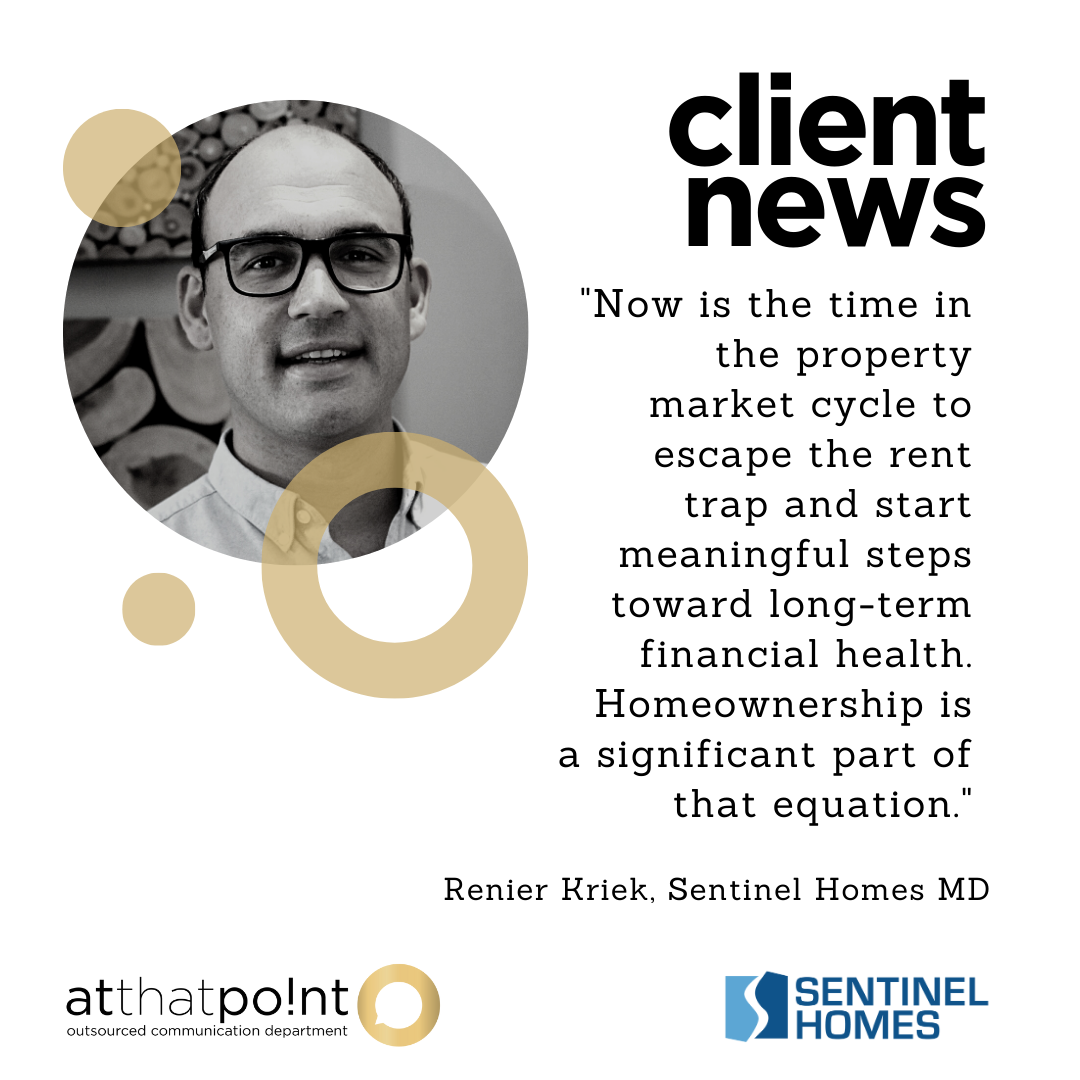 Homes farther out, and more reasonably priced. This is increasingly what South African property buyers are looking for. “There are multiple reasons contributing to this trend,” explains Renier Kriek, CEO of home financing company Sentinel Homes. "Rising interest rates and the resulting decline in transaction volume are significant factors. The increased proportion of ‘motivated sellers,’ selling because they are in a rising costs squeeze, are now likely to stabilise price growth until the rate hiking cycle eases off or starts to reverse.” According to Kriek, the consequences of the Covid-19 pandemic are also still very visible. “Office vacancy rates have increased, resulting in consumers no longer being as motivated by office proximity when selecting homes. This means they can search for value in outlying areas. Many even semigrate to other parts of the country. We also expect to see a rising level of commercial to residential conversions in urban areas. Semigration and its cousin convenience Kriek names the current hottest markets and sites for real estate investment as the coastal regions from the West Coast to Cape Town and Mossel Bay. “The Mother City remains very popular despite high prices and strained infrastructure,” he says. “This thanks to their loadshedding buffer due to the City’s generation projects and other electricity initiatives, as well as the city’s lifestyle benefits.” He claims that the Garden Route and George Airport’s close proximity make this popular tourist destination just as convenient as Cape Town. “But it must be highlighted that the affordability benefit there is quickly waning because this area has become a focus for immigrants from both inside and outside the Western Cape.” Finally, the West Coast (north of Cape Town) is also seeing a rise in the real estate market, thanks to its charming tiny fishing villages and rural communities like Langebaan, St Helena Bay and Paternoster. “Consumers who work from home are discovering the real value in pricing that was previously only influenced by variables connected to the regional fishing and farming industry. Due to external demand for property, it is now unbound. On the other hand, gentrification problems may result from this and increasingly poor access to housing for families in the bottom half of the income spectrum is a real threat.” Kriek says those still buying property in the economic hub of Gauteng, are shying away from freehold properties, such as single houses on larger plots in unguarded neighborhoods. “They prefer estates and sectional schemes. This is likely a search for safety and services,” he elaborates. Those entering the Gauteng property market will likely find the best long-term investment to be inside a security estate or secured sectional title scheme. Owners of freehold properties in more traditional suburbs may consider cashing out and moving with the trend in the interest of their longer-term financial well-being.” Challenges for First Time Buyers Kriek says that first-time buyers - who make up a very large proportion of purchasers - are moving into the property market much later. This trend is continuing to intensify. The lack of affordable housing supply and inefficient housing finance market in the affordable or gap housing market, specifically properties priced under R750 000, contributes significantly to this trend. “The National government, through the Department of Human Settlements, unveiled significant updates to their Finance Linked Individual Subsidy Programme (FLISP), now called First Home Finance, with the aim to improve access to affordable and gap housing. The expanded policy is still in the nascent stage of implementation, however, and its effects are likely not to be evident in market trends until next year.” Kriek adds that Sentinel Homes offers the first open-market alternative to mortgages. By expanding access to housing finance, it is serving those 5%-10% of housing consumers who lack housing finance, despite being creditworthy and having the necessary disposable income. “Now is the time in the property market cycle to escape the rent trap and start meaningful steps toward long-term financial health. Homeownership is a significant part of that equation,” says Kriek. “You are more likely to buy something you can really afford if you buy it in the current conditions. There is the added upside that prices for properties priced around the average can only really go one way from here – and that is up!” ENDS MEDIA CONTACT: Rosa-Mari Le Roux, [email protected], 060 995 6277, www.atthatpoint.co.za For more information on Sentinel Homes please visit: Website: www.sentinelhomes.co.za Facebook: Sentinel Homes
0 Comments
|
Welcome to the Sentinel Homes Newsroom. BROADCAST INTERVIEWS2023 Archives
July 2024
Categories
All
|

 RSS Feed
RSS Feed